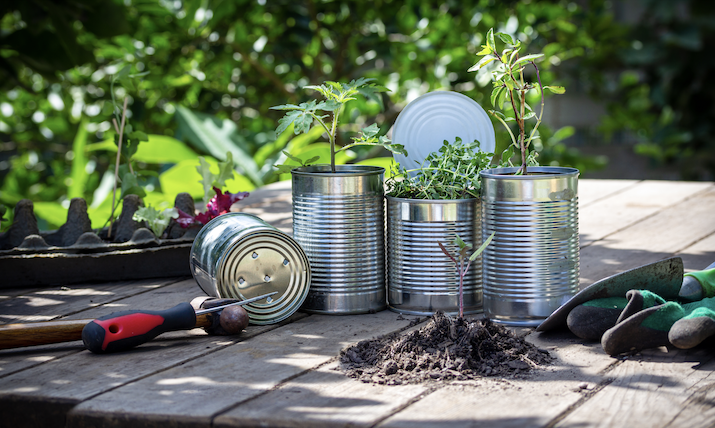Growing green

Image: Shutterstock
What’s the point of journalism if it doesn’t hold the people and companies it covers accountable, especially in relation to their sustainability targets?
This was something that was highlighted by Ball Corporation to myself and other fellow journalists on Tuesday (17 May). The evening started with a rallying call to action by Sian Sutherland, co-founder of A Plastic Planet, a global campaign organisation with the goal to ignite and inspire the world to turn off the plastic tap. Headed by Sian and Ball chairman John A. Hayes, the discussion emphasised the need for a truly circular economy, and we each considered what was needed to achieve this, including journalistic approaches to reporting on sustainability news.
A point asserted by John A. Hayes was that, if he saw someone in the press calling out Ball for something positive it wasn’t doing, he’d take notice and get to work on resolving it. He said that this is imperative for businesses wanting to move forward with their sustainability efforts. If you’re going to publicise your goals, you also need to make visible progress towards them and publicise the facts, not just wait i.e. five years and hope you can make a good excuse for not meeting the target. Hear, hear.
Another general agreement in the room in terms of what governments can do, was that they need to incentivise the public to take their recycling more seriously; it’s not enough to have recycling centres dotted around, with only a handful of return schemes, because people’s time and effort is often diverted elsewhere. However, add money-back incentives to the packaging they buy, publicise these, and people might start making more of an active effort to change their habits. Why hasn’t the UK accelerated its DRS already?
Also discussed was that, in the UK at least, local councils all seem to have different rules. Recycling confusion is a real thing and having a uniform set of rules across the country could be game-changing.
The harmful effects of global warming are accelerating daily. I heard on the radio just a couple of days ago that temperature extremes in India (such as, the heat reaching 50°C) are now happening every three years as opposed to every three hundred. We can’t just ignore stats like that. In the UK, our little island may seem a world apart, but if we don’t do something drastic soon, we’re pretty much just sitting ducks along with the rest…
But then saying this, maybe terrifying stats aren’t the best way to go about creating change. Sian made an important comment about this, believing that, with the news currently saturated (and rightly so) with Covid and the war on Ukraine, we’ve become slightly desensitised to negative news, and may only wake up when the very worst has happened. Positive journalism has its complexities, but is definitely valuable where environmental matters and coercing the public are concerned.
John supported this and concluded the evening by stating the power of storytelling in journalism, which is personally something I hope I can continue to bring to our CanTech readers.
Speaking of which, our June issue is out very soon and I hope it highlights some of the ways in which can manufacturers and metal packaging specialists can make their operations even greener. The industry needs to come together and set its own standards if governments are going to continue slow trajectories towards the legislation needed.
Thank you to Ball and everyone involved for an inspiring weekday evening.
- Alex Rivers (she/her), CanTech International editor
Keep in touch via email: [email protected] Twitter: @CanTechIntl or LinkedIn: CanTech International magazine.



